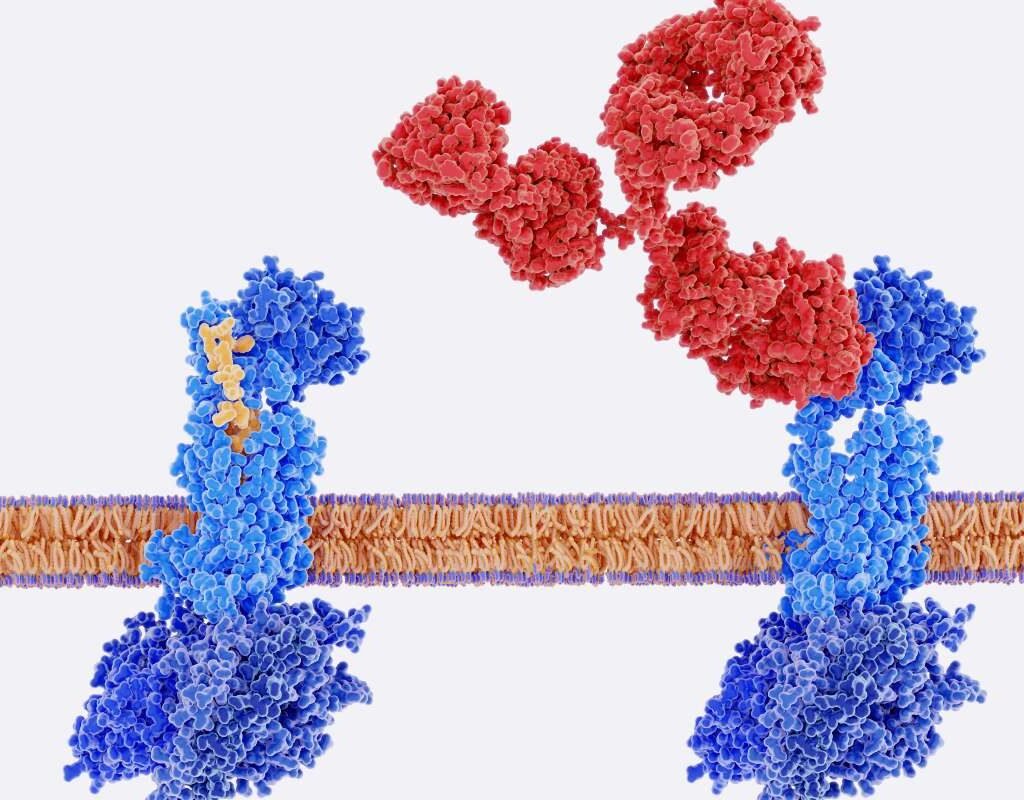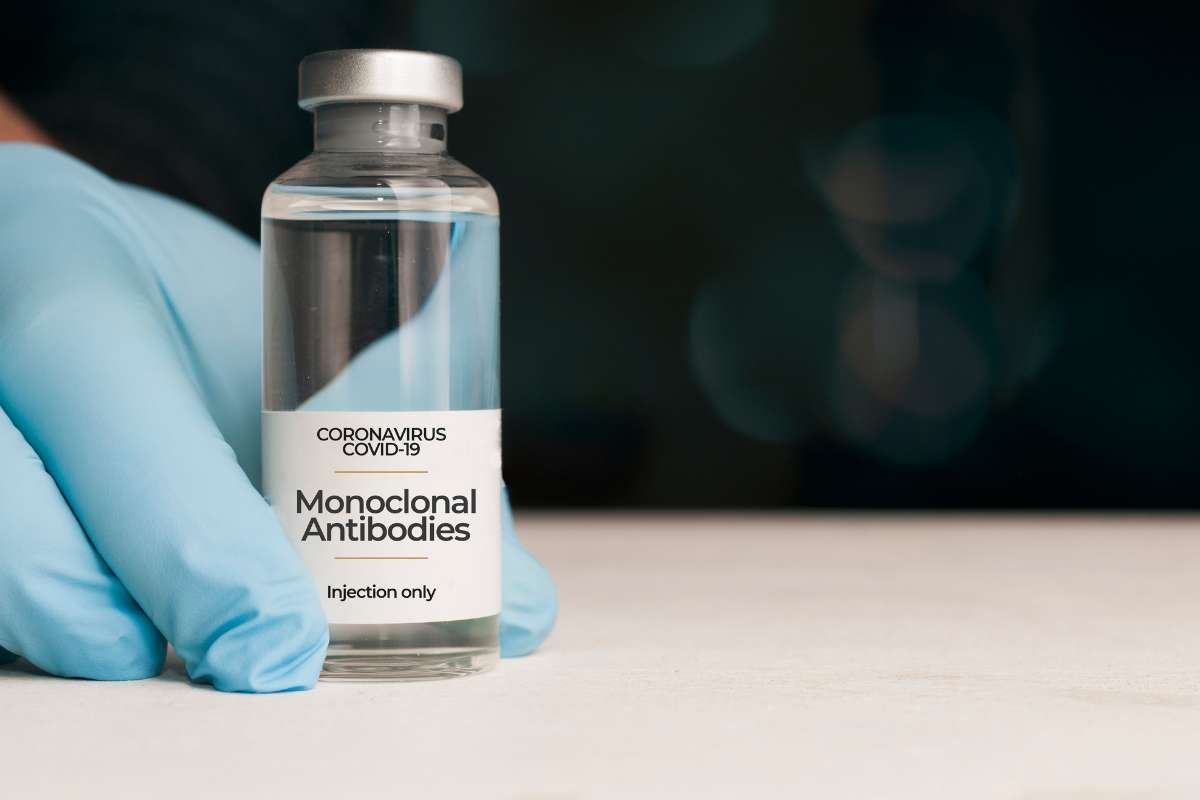Monoclonal antibody treatment has emerged as a groundbreaking therapeutic approach in modern medicine, offering targeted solutions for various diseases, including cancer, autoimmune disorders, infectious diseases, and more. Monoclonal antibodies (mAbs) represent a form of immunotherapy that harnesses the body’s immune system to fight specific pathogens or abnormal cells. This article delves into the science behind monoclonal antibody treatments, their development, therapeutic applications, and future potential in medicine.
Get to know more about Monoclonal antibody treatment:
What Are Monoclonal Antibodies?

Monoclonal antibodies are laboratory-made molecules engineered to function like the antibodies produced naturally by the body in response to pathogens. These antibodies are “monoclonal,” meaning they are identical copies of one type of antibody designed to target a specific antigen. An antigen is any foreign substance, such as a virus, bacterium, or cancer cell, that triggers an immune response in the body.
In their natural form, antibodies recognize and bind to antigens, marking them for destruction by other immune cells. Monoclonal antibodies mimic this function but are designed to bind to a specific target with high precision. This targeted approach allows monoclonal antibodies to neutralize harmful cells or pathogens without harming surrounding healthy tissues, making them highly effective in treating a wide range of diseases.
Therapeutic Applications of Monoclonal Antibodies

Monoclonal antibodies have been applied in various medical fields, transforming the treatment landscape for many diseases. Some of the most notable therapeutic applications include:
1. Cancer Treatment
Monoclonal antibody therapy has revolutionized cancer treatment by offering targeted, less toxic alternatives to traditional therapies such as chemotherapy and radiation. These antibodies can specifically target proteins on the surface of cancer cells, sparing healthy cells from damage. Some common Monoclonal Antibody Treatments used in cancer treatment include:
- Trastuzumab (Herceptin): Used to treat HER2-positive breast cancer by targeting the HER2 protein on cancer cells, inhibiting their growth and survival.
- Rituximab (Rituxan): Used for non-Hodgkin lymphoma and chronic lymphocytic leukemia by targeting the CD20 protein on the surface of certain immune cells.
- Bevacizumab (Avastin): Inhibits angiogenesis, the process of new blood vessel formation that tumors rely on for growth, by targeting the vascular endothelial growth factor (VEGF).
In addition to direct targeting, monoclonal antibodies can be used in combination with other cancer treatments, such as chemotherapy or immune checkpoint inhibitors, to enhance their effectiveness.
2. Autoimmune Diseases
Monoclonal antibodies have been used to treat a range of autoimmune diseases, where the body’s immune system mistakenly attacks healthy tissues. These therapies work by neutralizing specific immune cells or proteins that drive inflammation and tissue damage in conditions such as:
- Rheumatoid Arthritis: Monoclonal antibodies like adalimumab (Humira) and infliximab (Remicade) target tumor necrosis factor (TNF), a protein that causes inflammation in joints.
- Multiple Sclerosis (MS): Ocrelizumab (Ocrevus) targets B cells, a type of immune cell that contributes to the nerve damage seen in MS, reducing the frequency of relapses and slowing disease progression.
- Psoriasis: Ustekinumab (Stelara) and secukinumab (Cosentyx) are monoclonal antibodies that target proteins involved in inflammation, helping to reduce the severity of psoriatic skin lesions.
3. Infectious Diseases
Monoclonal Antibody Treatment has also played a critical role in the treatment of infectious diseases, particularly during the COVID-19 pandemic. Several monoclonal antibodies were developed to target the SARS-CoV-2 virus, helping to reduce the severity of illness in high-risk patients. Notable examples include:
- Casirivimab and Imdevimab (Regeneron): A combination of monoclonal antibodies used to treat mild to moderate COVID-19, designed to bind to the spike protein of the virus and prevent it from entering human cells.
- Bamlanivimab and Etesevimab: Another combination therapy targeting the spike protein, authorized for emergency use in COVID-19 treatment.
Monoclonal antibodies are also being explored for their potential in treating other infectious diseases, such as HIV, Ebola, and respiratory syncytial virus (RSV).
4. Transplant Rejection Prevention
In organ transplantation, the immune system can recognize the new organ as foreign and attack it, leading to rejection. Monoclonal antibodies such as basiliximab and daclizumab have been used to suppress the immune response and reduce the risk of rejection, particularly in kidney and liver transplant patients.
The Development of Monoclonal Antibody Treatment
The development of monoclonal antibody therapies involves a sophisticated process of identifying and isolating specific antibodies that can recognize and neutralize a particular antigen. Here’s a brief overview of the key steps in the development process:
- Antigen Selection: The first step is to identify the target antigen on the surface of the disease-causing pathogen or abnormal cell. For cancer, this might be a protein expressed on tumor cells; for infectious diseases, it could be a viral or bacterial protein.
- Immune Response Simulation: Once the antigen is identified, scientists stimulate an immune response by introducing the antigen into a laboratory animal, typically a mouse, which produces antibodies against the antigen. These antibodies are then harvested from the animal’s immune cells.
- Cloning and Engineering: The harvested antibodies are screened for their effectiveness in targeting the antigen. The most effective antibodies are cloned to create large quantities of identical (monoclonal) antibodies. Advances in genetic engineering have allowed scientists to modify these antibodies to improve their safety, effectiveness, and compatibility with the human immune system.
- Humanization: Since the original antibodies are often produced in animals, they may be recognized as foreign by the human immune system. To reduce the risk of rejection or adverse reactions, researchers “humanize” the monoclonal antibodies by replacing parts of the mouse antibody with human antibody components, ensuring they are better tolerated in human patients.
- Clinical Trials: Before monoclonal antibodies can be approved for widespread use, they must undergo rigorous testing in clinical trials to evaluate their safety and efficacy. These trials are conducted in phases, starting with small groups of patients and expanding to larger populations.
Challenges and Future Prospects of Monoclonal Antibody Therapy

While monoclonal antibody treatments offer numerous advantages, there are also challenges and limitations that must be addressed:
- Cost: Monoclonal antibody therapies are often expensive to produce and administer, making them inaccessible to some patients. The high cost is primarily due to the complex development and manufacturing process, which requires specialized facilities and technologies.
- Resistance: In some cases, diseases can develop resistance to antibody treatments, particularly in cancer therapy. Tumor cells can mutate or alter the expression of target proteins, rendering the antibody less effective over time.
- Side Effects: Although monoclonal antibodies are generally well-tolerated, some patients may experience side effects, including allergic reactions, infusion-related reactions, or infections due to immune suppression.
- Administration: Most monoclonal antibodies are administered via intravenous infusion, which can be inconvenient for patients who require long-term or repeated treatments. Researchers are working on developing subcutaneous or oral formulations to improve ease of use.
Live Q&A: Monoclonal Antibodies Treatment for COVID-19
Despite these challenges, antibody treatments hold immense promise for the future of medicine. Advances in biotechnology and genetic engineering are paving the way for the development of more effective, affordable, and accessible therapies. Scientists are also exploring new ways to enhance the potency and durability of monoclonal antibodies, such as combining them with other therapies or engineering them to last longer in the bloodstream.
Conclusion
Monoclonal antibody treatment represents a significant milestone in the evolution of targeted therapies in medicine. Its ability to precisely target specific antigens has made it a valuable tool in the treatment of cancer, autoimmune diseases, infectious diseases, and transplant rejection. While challenges remain, the future of monoclonal antibody therapy is bright, with ongoing research poised to expand its applications and improve patient outcomes across a wide range of diseases. As science continues to advance, monoclonal antibodies will likely play an increasingly important role in the fight against some of the world’s most challenging health conditions.







